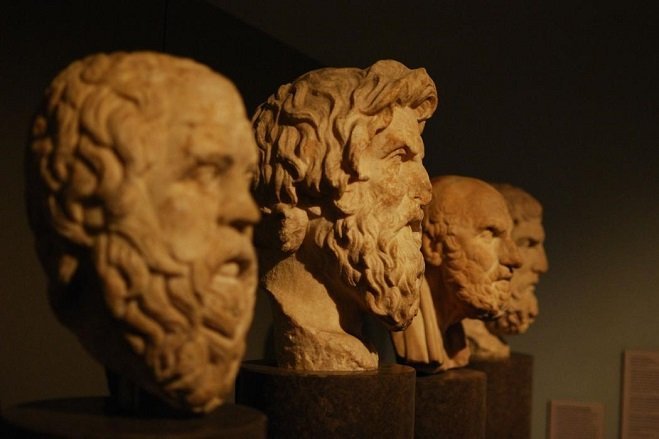According to Aristotle, any series of causes or consequences can not be insignificant. There is a Cause that determines itself and is undetermined by nothing - the Cause of All Causes. Therefore, there is one Essence, a primary reason that makes all other origins and causes true. It is precisely the cause of every cause and movement. This is the first engine / proton kinon /, the beginning of each movement and change, since each variation is a definite form of motion. But He, arguing Aristotle, is motionless and unchangeable. As the most perfect form, He is unchanging, and there is nothing material in it because it is pure energy. He is an absolutely mindless Spirit; It is thought and action, reason / nous /, a perfect thought directed at one's own mental activity.
The rationale for all forms of movement stems from the nature of the Divine as from a perfect, omnipotent and infinite Spirit. The activity of this Spirit is expressed only in thinking, because any other reality would have objects and goals outside of itself. The continual thought activity (theoria / God's) consists in a constant contemplation of one's own blissful state and perfection, purity and completeness of being. God influences the world not by being actively present in it. Absolutely perfect in nature, in his capacity as a higher God, God is the ultimate goal of all things that seek and move toward Him in the drive to ever greater perfection. Aristotle did not come to the idea of the Divine Will, aimed at the creative transformation of the world and the deliberate actions of God's dedication in the love of the created world. In Aristotle's philosophical system, God is the beginning that does not propel the world in the crude naturalist sense as a primary mechanical impetus.
It is the cause of movement as an internal goal, as an object of universal striving and a major tendency towards ever greater perfection as a subject of universal love. "In this way, the motion brought by Him in motion moves the rest." God from eternity and always possesses goodness and perfection in Himself. His work, however, which surpasses every bliss, consists in thinking. In the system of philosophy, this doctrine is an objective idealism and, along with it, theology. The principle basis and essence of Aristotle's philosophy is the same as Plato. In Plato's higher being these are objectively existing forms or ideas / "species", "eidos". With Aristotle, the higher being - this is one divine, indelible "form", "the pure", without admirable divine Mind, thinking of its own mental activity. In Aristotle, the doctrine of God is characterized by its philosophical abstraction and detachment from living religious experience, as a result of which it carries within itself the imprint of the purely theoretical determination of God's essence. It is a complex labyrinth of logical constructions with a desist slopes. The Lord at Aristotle, however, is not primarily a cosmological, naturophilosophical hypothesis, like the Mind at Anaxagor.

Nice
Interesting.. Great job!
Thank you :)
You got a 44.14% upvote from @emperorofnaps courtesy of @godflesh!
Want to promote your posts too? Send 0.05+ SBD or STEEM to @emperorofnaps to receive a share of a full upvote every 2.4 hours...Then go relax and take a nap!